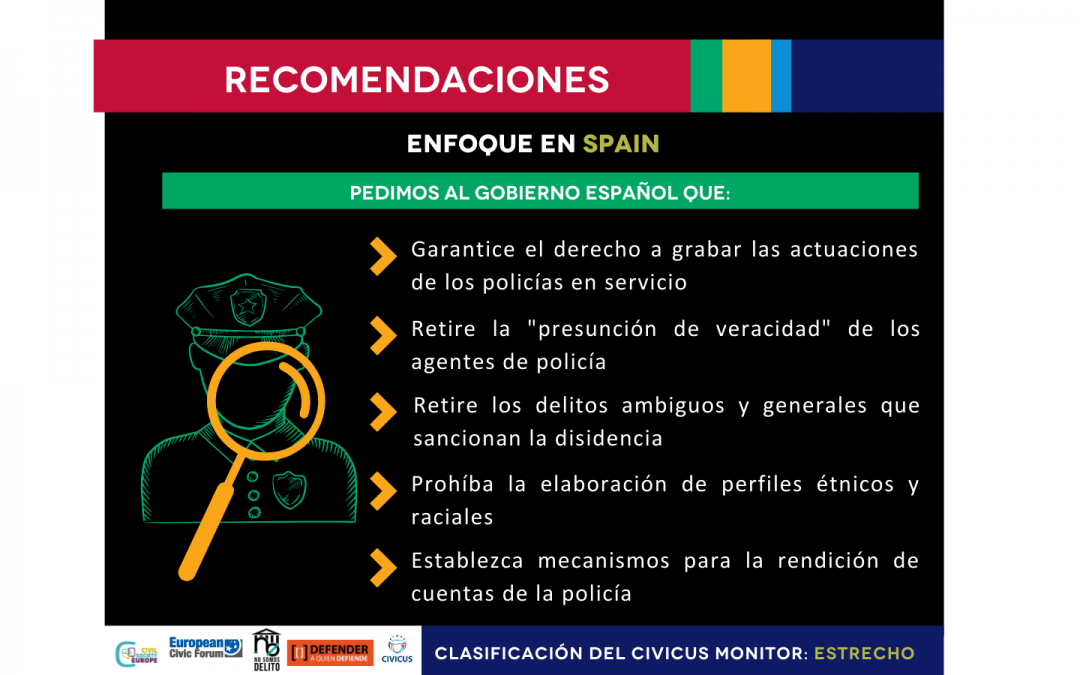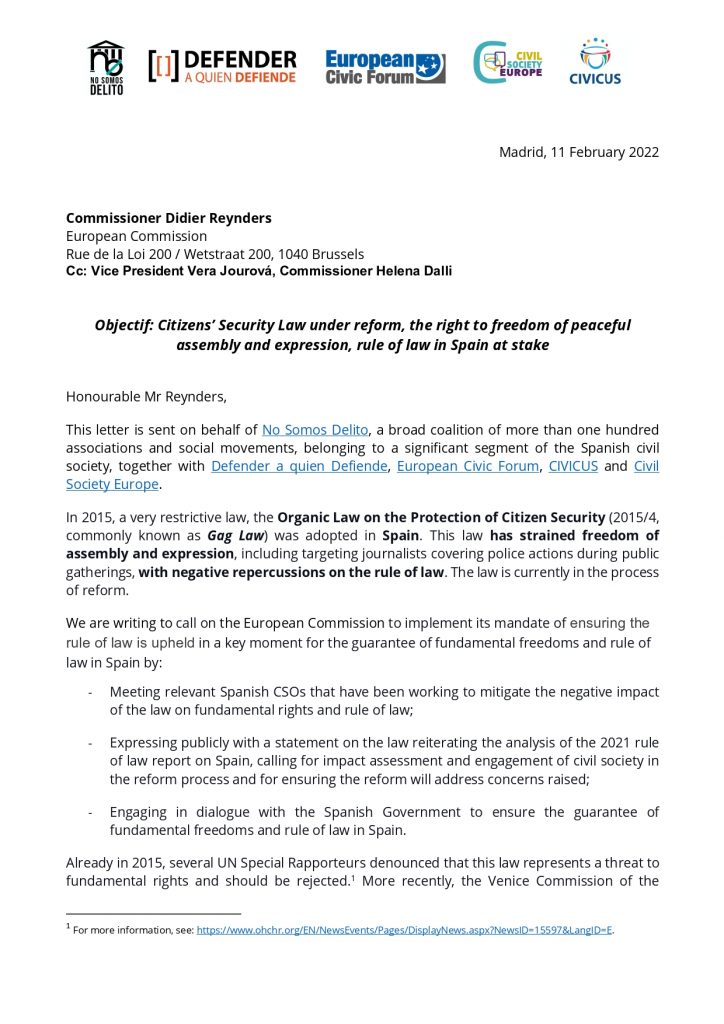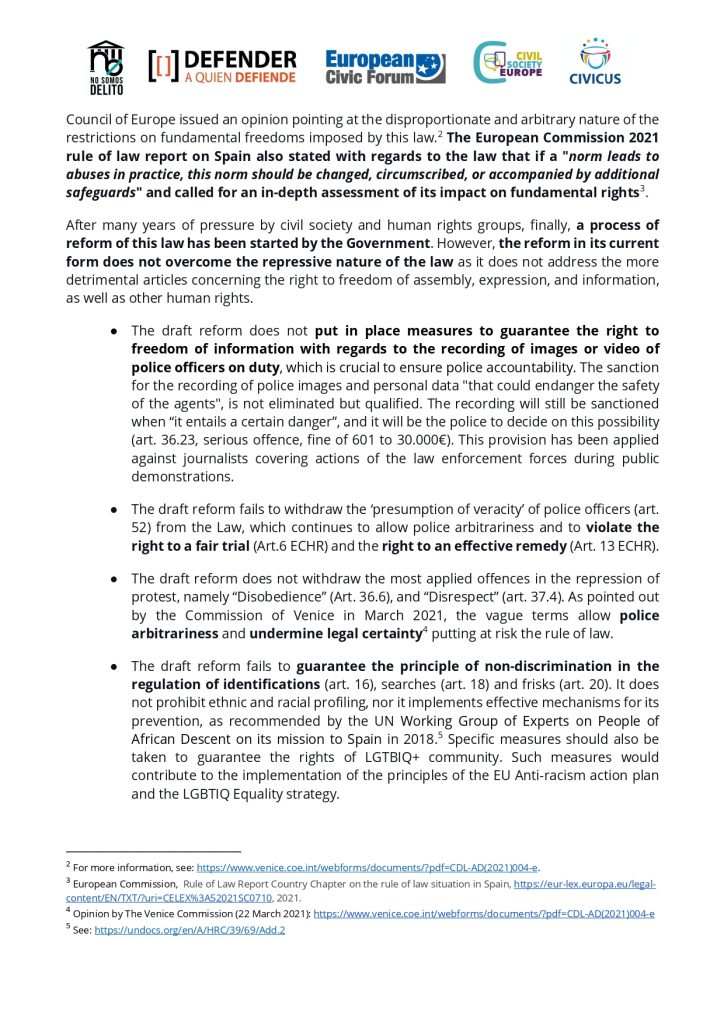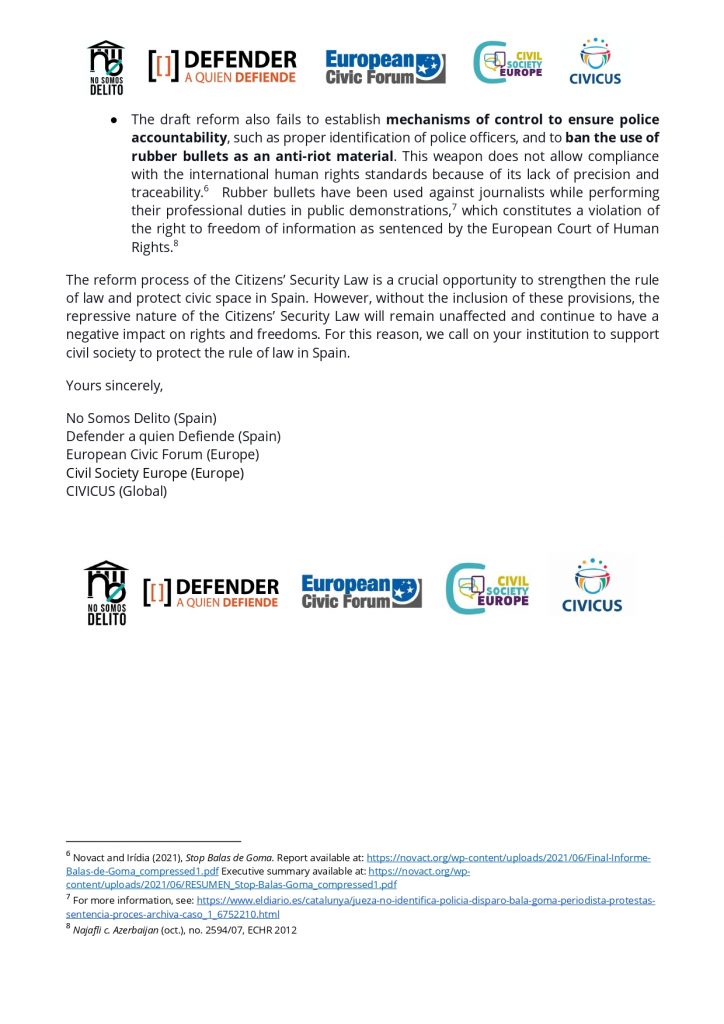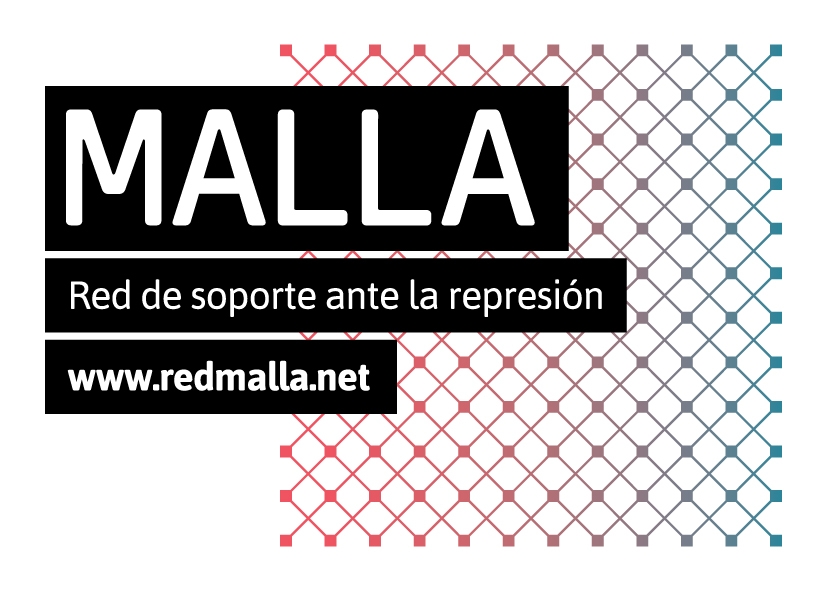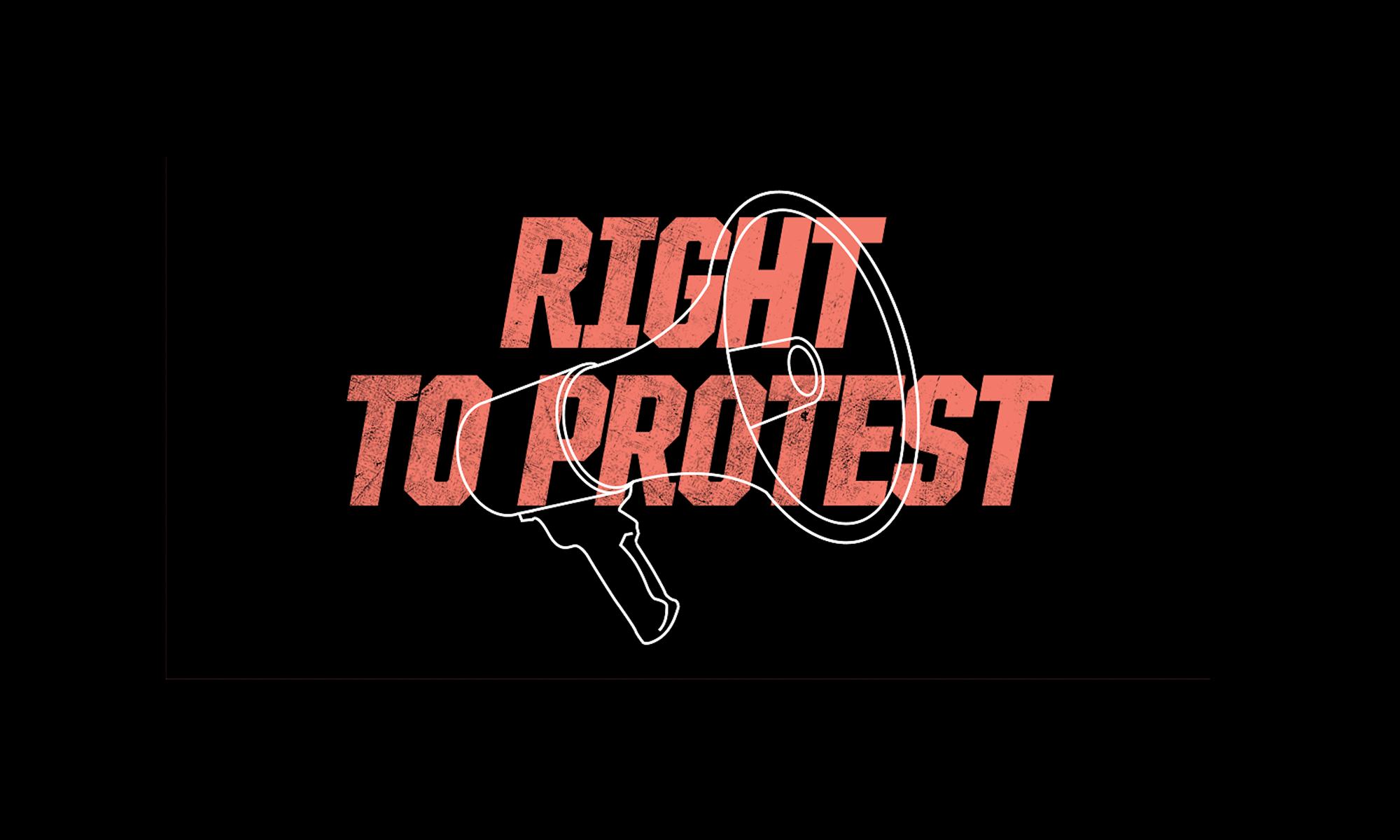El pasado viernes 11 de febrero, desde Defender A Quién Defiende y No Somos Delito, conjuntamente con diversas plataformas de organizaciones de derechos humanos de ámbito europeo tales como el European Civic Forum, CIVICUS y Civil Society Europe, las cuales agrupan más de 100 organizaciones de 28 païses europeos, hicimos llegar una carta oficial a la Comisión Europea.
La carta, dirigida a Didier Reynders, Comisario de Justícia, alerta que la reforma propuesta de la Ley de Seguridad Ciudadana no aborda los aspectos más lesivos para el ejercicio de los derechos fundamentales y pide a la Comisión un posicionamiento y la obertura de diálogo con el Gobierno.
———————-
Objectif: Citizens’ Security Law under reform, the right to freedom of peaceful assembly and expression, rule of law in Spain at stake
Honourable Mr Reynders,
This letter is sent on behalf of No Somos Delito, a broad coalition of more than one hundred associations and social movements, belonging to a significant segment of the Spanish civil society, together with Defender a quien Defiende, European Civic Forum, CIVICUS and Civil Society Europe.
In 2015, a very restrictive law, the Organic Law on the Protection of Citizen Security (2015/4, commonly known as Gag Law) was adopted in Spain. This law has strained freedom of assembly and expression, including targeting journalists covering police actions during public gatherings, with negative repercussions on the rule of law. The law is currently in the process of reform.
We are writing to call on the European Commission to implement its mandate of ensuring the rule of law is upheld in a key moment for the guarantee of fundamental freedoms and rule of law in Spain by:
- Meeting relevant Spanish CSOs that have been working to mitigate the negative impact of the law on fundamental rights and rule of law;
- Expressing publicly with a statement on the law reiterating the analysis of the 2021 rule of law report on Spain, calling for impact assessment and engagement of civil society in the reform process and for ensuring the reform will address concerns raised;
- Engaging in dialogue with the Spanish Government to ensure the guarantee of fundamental freedoms and rule of law in Spain.
Already in 2015, several UN Special Rapporteurs denounced that this law represents a threat to fundamental rights and should be rejected. More recently, the Venice Commission of the Council of Europe issued an opinion pointing at the disproportionate and arbitrary nature of the restrictions on fundamental freedoms imposed by this law. The European Commission 2021 rule of law report on Spain also stated with regards to the law that if a «norm leads to abuses in practice, this norm should be changed, circumscribed, or accompanied by additional safeguards» and called for an in-depth assessment of its impact on fundamental rights.
After many years of pressure by civil society and human rights groups, finally, a process of reform of this law has been started by the Government. However, the reform in its current form does not overcome the repressive nature of the law as it does not address the more detrimental articles concerning the right to freedom of assembly, expression, and information, as well as other human rights.
- The draft reform does not put in place measures to guarantee the right to freedom of information with regards to the recording of images or video of police officers on duty, which is crucial to ensure police accountability. The sanction for the recording of police images and personal data «that could endanger the safety of the agents», is not eliminated but qualified. The recording will still be sanctioned when “it entails a certain danger”, and it will be the police to decide on this possibility (art. 36.23, serious offence, fine of 601 to 30.000€). This provision has been applied against journalists covering actions of the law enforcement forces during public demonstrations.
- The draft reform fails to withdraw the ‘presumption of veracity’ of police officers (art. 52) from the Law, which continues to allow police arbitrariness and to violate the right to a fair trial (Art.6 ECHR) and the right to an effective remedy (Art. 13 ECHR).
- The draft reform does not withdraw the most applied offences in the repression of protest, namely “Disobedience” (Art. 36.6), and “Disrespect” (art. 37.4). As pointed out by the Commission of Venice in March 2021, the vague terms allow police arbitrariness and undermine legal certainty putting at risk the rule of law.
- The draft reform fails to guarantee the principle of non-discrimination in the regulation of identifications (art. 16), searches (art. 18) and frisks (art. 20). It does not prohibit ethnic and racial profiling, nor it implements effective mechanisms for its prevention, as recommended by the UN Working Group of Experts on People of African Descent on its mission to Spain in 2018. Specific measures should also be taken to guarantee the rights of LGTBIQ+ community. Such measures would contribute to the implementation of the principles of the EU Anti-racism action plan and the LGBTIQ Equality strategy.
- The draft reform also fails to establish mechanisms of control to ensure police accountability, such as proper identification of police officers, and to ban the use of rubber bullets as an anti-riot material. This weapon does not allow compliance with the international human rights standards because of its lack of precision and traceability. Rubber bullets have been used against journalists while performing their professional duties in public demonstrations, which constitutes a violation of the right to freedom of information as sentenced by the European Court of Human Rights.
The reform process of the Citizens’ Security Law is a crucial opportunity to strengthen the rule of law and protect civic space in Spain. However, without the inclusion of these provisions, the repressive nature of the Citizens’ Security Law will remain unaffected and continue to have a negative impact on rights and freedoms. For this reason, we call on your institution to support civil society to protect the rule of law in Spain.
Yours sincerely,
No Somos Delito (Spain)
Defender a quien Defiende (Spain)
European Civic Forum (Europe)
Civil Society Europe (Europe)
CIVICUS (Global)
For more information: https://civicspacewatch.eu/spain-gag-law-under-reform-the-right-to-freedom-of-peaceful-assembly-expression-and-rule-of-law-at-stake-joint-letter/

